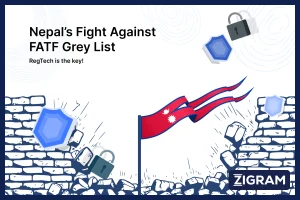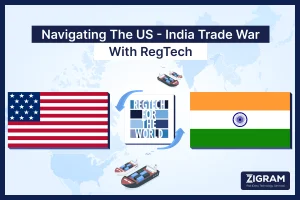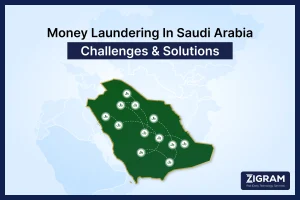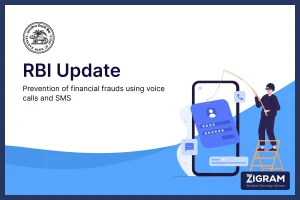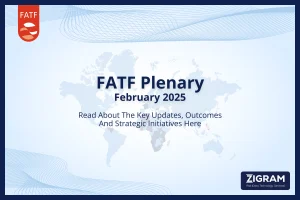In an increasingly interconnected world, international businesses face the dual challenge of expansion and compliance. One critical area that demands meticulous attention is Anti-Money Laundering (AML) due diligence. As financial transactions cross borders, so do the risks associated with money laundering and terrorist financing. This article explores the intricacies of cross border AML due diligence and provides a comprehensive guide for international businesses to navigate this complex regulatory landscape.

Understanding Cross Border AML Due Diligence
AML due diligence involves a series of checks and measures to ensure that businesses do not inadvertently facilitate money laundering or terrorist financing. When operating across borders, the complexity of these measures increases due to varying regulations, cultural differences, and diverse legal environments.
Key Challenges In Cross Border AML Due Diligence
Diverse Regulatory Frameworks:
Different countries have their own AML regulations, which can vary significantly. Businesses must stay informed about and comply with these varying requirements to avoid legal penalties and reputational damage.
Data Privacy and Sharing:
The exchange of information across borders is often restricted by data privacy laws. Balancing compliance with AML regulations and adhering to data protection laws can be challenging.
Cultural and Language Barriers:
Understanding local business practices and navigating language differences are crucial for effective due diligence. Misinterpretation or lack of understanding can lead to compliance gaps.
Technological Disparities:
Varying levels of technological advancement can affect the efficiency and effectiveness of AML processes. Some countries may have sophisticated systems in place, while others rely on manual processes.
Best Practices For Effective Cross Border AML Due Diligence
Implement a Robust AML Framework:
Establish a comprehensive AML policy that includes procedures for customer due diligence (CDD), enhanced due diligence (EDD), and ongoing monitoring. Ensure this framework is adaptable to different regulatory environments.
Leverage Technology:
Utilize advanced technologies such as artificial intelligence (AI) and machine learning to automate and enhance due diligence processes. These technologies can help identify suspicious patterns and reduce human error.
Stay Informed and Adaptive:
Regularly update your knowledge of global AML regulations. Participate in international forums and industry groups to stay abreast of changes and emerging trends.
Foster Cross-Border Collaboration:
Work with local experts and establish partnerships with international compliance organizations. This can provide valuable insights into local regulations and practices.
Invest in Training:
Ensure that your compliance teams are well-trained in both global and local AML regulations. Regular training sessions can help them stay updated and improve their effectiveness.
Conduct Regular Audits:
Periodically review and audit your AML processes to identify any weaknesses or areas for improvement. Independent audits can provide an unbiased assessment of your compliance status.
Real-Life Cases Highlighting Cross Border AML Due Diligence
HSBC and the Mexico-US Money Laundering Case:
In 2012, HSBC faced a significant AML scandal involving the transfer of billions of dollars through its US and Mexico branches without adequate AML controls. The bank's failure to implement effective cross-border AML due diligence led to a $1.9 billion fine by US authorities. This case underscores the importance of rigorous AML frameworks and consistent application across all jurisdictions.
Danske Bank's Estonian Branch Scandal:
Between 2007 and 2015, Danske Bank's Estonian branch was implicated in a massive money laundering scheme involving €200 billion of suspicious transactions from Russia and other former Soviet states. The lack of robust AML checks and cross-border oversight allowed illicit funds to flow through the bank unchecked. This scandal highlights the necessity of thorough due diligence and the risks associated with failing to monitor cross-border transactions effectively.
Standard Chartered and the UAE Transactions:
In 2019, Standard Chartered was fined $1.1 billion by US and UK authorities for AML violations, including the processing of transactions that violated sanctions against Iran. The bank's branches in the UAE were found to have processed transactions without adequate due diligence, illustrating the complexities of cross-border compliance and the importance of adhering to international sanctions and AML regulations.
Commonwealth Bank of Australia (CBA) and AUSTRAC Penalty:
In 2018, CBA was fined AUD 700 million by the Australian Transaction Reports and Analysis Centre (AUSTRAC) for AML compliance failures. The bank failed to report over 53,000 transactions over a three-year period, many of which involved cross-border transfers. This case highlights the need for rigorous transaction monitoring and reporting, especially in the context of cross-border financial activities.
Key Regulations From Top Countries And International Bodies
Understanding the regulatory landscape is crucial for effective cross-border AML due diligence. Here are some key regulations from major jurisdictions and international bodies:
United States
- Bank Secrecy Act (BSA): Requires financial institutions to assist U.S. government agencies in detecting and preventing money laundering.
- USA PATRIOT Act: Expands AML requirements to cover a broader range of financial transactions and imposes stricter CDD and reporting obligations.
European Union
- 4th and 5th Anti-Money Laundering Directives (AMLD4 and AMLD5): Establish comprehensive AML frameworks, including requirements for CDD, EDD, and beneficial ownership transparency.
- 6th Anti-Money Laundering Directive (AMLD6): Further strengthens regulations by introducing stricter penalties and expanding the list of predicate offenses.
United Kingdom
- Money Laundering, Terrorist Financing and Transfer of Funds (Information on the Payer) Regulations 2017: Implements EU AML directives and outlines specific requirements for financial institutions, including risk assessments and ongoing monitoring.
Australia
- Anti-Money Laundering and Counter-Terrorism Financing Act 2006: Mandates comprehensive AML/CTF programs, including KYC, reporting obligations, and record-keeping requirements.
Singapore
- Monetary Authority of Singapore (MAS) Notice 626: Specifies AML/CFT requirements for financial institutions, including CDD, suspicious transaction reporting, and internal policies.
Canada
- Proceeds of Crime (Money Laundering) and Terrorist Financing Act (PCMLTFA): Requires financial institutions to implement AML/CTF programs, report suspicious transactions, and maintain records.
International Regulations
- Financial Action Task Force (FATF) Recommendations: Provide a globally recognized framework for AML/CFT measures. Countries are assessed on their adherence to these recommendations, which cover CDD, beneficial ownership, and international cooperation.
- Basel Committee on Banking Supervision (BCBS) Guidelines: Offer best practices for AML/CFT compliance within the banking sector, emphasizing risk management and regulatory compliance.
Cross border AML due diligence is a critical component of compliance for international businesses. By understanding the challenges and implementing best practices, businesses can effectively mitigate risks associated with money laundering and terrorist financing. Real-life cases demonstrate the severe consequences of inadequate AML measures and the importance of staying informed, leveraging technology, and fostering collaboration. Familiarity with key regulations from top countries and international bodies is essential for navigating the complexities of global AML compliance. As the regulatory landscape continues to evolve, proactive and adaptive strategies will be essential for maintaining compliance and safeguarding your business’s reputation.
Download Free due diligence report samples by ZIGRAM from here : Click Here.
- #CrossBorderCompliance
- #AMLDueDiligence
- #AntiMoneyLaundering
- #RegTech
- #InternationalBusiness
- #Compliance
- #GlobalRegulations
- #FinancialSecurity

